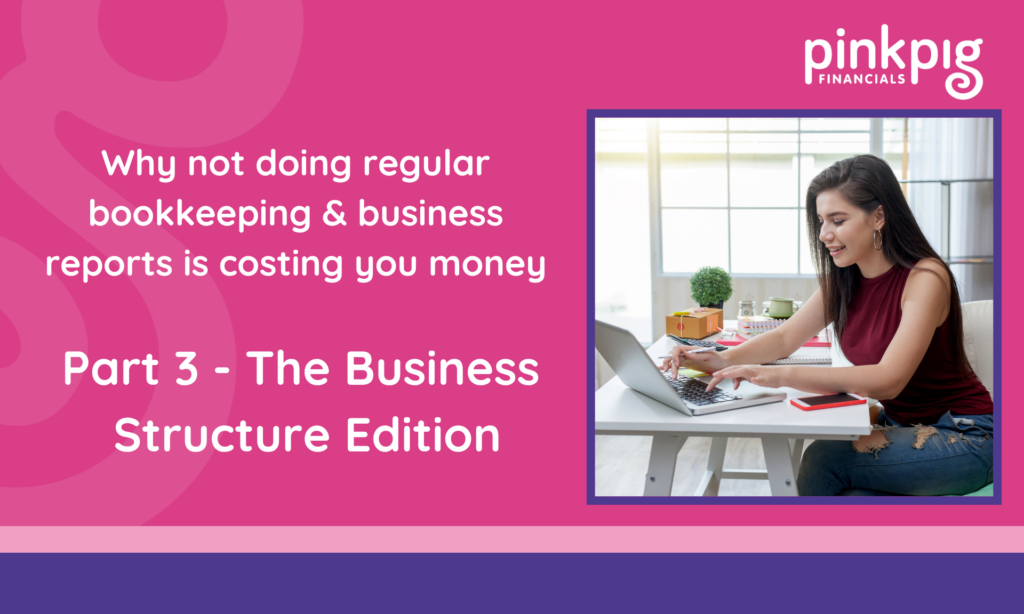Welcome to our new 5-part series on how you are probably losing money if you are not doing regular bookkeeping & reporting within your business. This is Part 3 – The Business Structure Edition.
What is Bookkeeping?
Bookkeeping is essentially the financial record-keeping for your business – done properly, it will tell you everything that’s come in, everything that’s gone out, everyone who owes you, everyone who you owe, how much tax you will need to pay, and the list just goes on.
Reporting without accurate bookkeeping is about as useful as an accountant without a calculator … but – paired with good bookkeeping, checking out your business reports regularly will enable you to plan for the future, see how to scale and when and will stop you from falling into any financial pitfalls.
Now we’ve got that cleared up, let’s get into it…
Part 3 – The Business Structure Edition.
Don’t be offended here but –
95% of people, when taking the plunge into being self-employed … don’t really know what they’re doing on the finance side of things and need to ask for advice.
Knowing what we don’t know is an excellent quality to have, by the way… but getting that advice from the wrong place could end up costing you a lot of money…
Sole Trader vs Limited Company
Many people start out as Sole Traders stating ‘’I didn’t really know what else to do’’, and, for a budding small business, is often the right choice.
However, there comes a point in your growth, where your profit levels mean that you would actually start to SAVE tax if you incorporated as a Limited Company.
Knowing when to do this requires a bit of calculation using a trusty spreadsheet, to figure out what the Corporation & Dividend taxes would be, as opposed to your Self-Assessment tax. And, if those sums weren’t tricky enough, there’s now 2 rates of Corporation Tax, as well as a sliding scale in between them… so these sums aren’t as simple as they once were!
On the other hand, there are times when the circumstances of a business change and actually reverting to Sole Trading is a more tax efficient choice.
Blog Suggestion: When should I go from Sole trader to Limited Company?
Having someone who is clued up on all things tax take a look at this periodically (we would suggest each quarter) is just one piece of the puzzle. If the figures they’re plugging into those calculations aren’t up-to-date or even correct, the advice you get could actually be wrong, and see your valuable cash being sent off to HMRC as tax.
The best way to keep up-to-date and accurate is to use accounting software (sorry, but spreadsheets just don’t cut it anymore!), and get clued up on how to understand the data and what it’s telling you.
As if having to pay more tax by being structured wrongly isn’t enough to convince you to keep your records up-to-date, go back and see:
or move onto
Part 4 – The Time Freedom edition.
Part 5 – The Mind Freedom Edition
If you’d like to get some training on how to do accurate bookkeeping & reporting for yourself, or you’d like to outsource this to the experts, fill in our Quick Questionnaire and we’ll be more than happy to help you.
For more Tax Tips & advice, check out PPF on YouTube!

